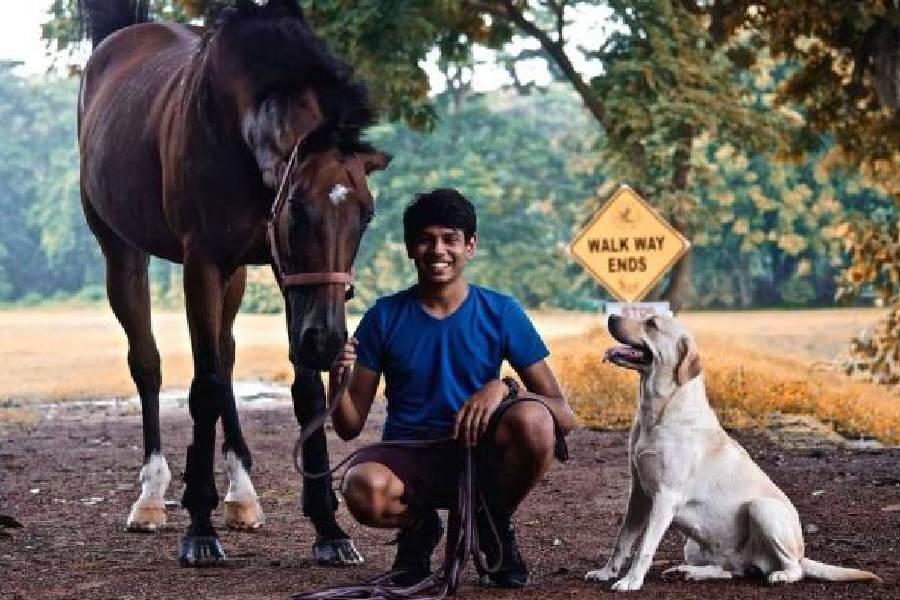Better humans, better dogs” — a saying I personally live by. Dogs are an invaluable gift to humans because of their ability to reciprocate unconditional love and loyalty. To appreciate and value these strong emotions that have developed over generations, it is extremely important to establish a clear line of communication. This communication can only be built through structured training and routine.
Golden retrievers, Labradors, German shepherds, Rottweilers, Rhodesian Ridgeback, the list goes on and on. What purpose does each breed serve? Every breed of dog has been bred for a specific purpose — a purpose/job they have been developed to fulfil with utmost commitment. Every single dog is born with a predisposed instinct which needs to be nurtured and channelised. Hence, when we talk about training it is extremely important to understand the genetics and nature of the specific breed. For example, Golden retrievers were bred to retrieve birds. So it is natural for them to get excited when they see or hear birds. This same behaviour can also be observed in many cocker spaniels. It is very common for spaniels to bark uncontrollably and chase birds as they were specifically bred to do so. Hunters developed cocker spaniels to bark and provoke birds to fly out of tall grass, making the birds an easier target. In the same way, our friendly, loving, and familiar Indies or rather Indian pariah dogs are a unique breed with their own instinctual traits and requirements. As pet parents, it is absolutely essential to understand what these requirements are and how to cater to them. So the question arises, how can we channelise a dog’s natural instincts to make them more communicative and happy? The simple answer is training.
You want to have fun with your dog. Your dog wants to have fun with you. So how do we make that happen? Effective training lets your dog live a happier and healthier lifestyle. It allows you to spend quality time with your dog in different social environments, from something as simple as going on a drive and taking them over to a friend’s house or a café to going on adventures and vacations, without stressing that they would harm themselves or others around them, be indisciplined or reactive. The end goal of training is to have a socially well-balanced dog. A dog who can remain calm and neutral through different kinds of scenarios, for example, traffic, fireworks, around other dogs, and so on. Structured training is what can unleash your dog’s true potential.
Of course, training is an ongoing process. To develop a truly socially well-balanced dog, we must accept the fact that training is a lifelong continuous process and requires patience and consistency. Thus, it is extremely important we adopt more positive training methods. Methods that encourage the dog to be comfortable and happy rather than being scared and timid while being asked to do something.
Pet parents must always understand that they are responsible for most of their dog’s behaviours, be it good behaviour or bad behaviour. Regardless of what laws and lawmakers would have you believe, there is no such thing as ‘aggressive breeds’. The notion of entire breeds being aggressive, violent or a threat to human life is misinformation. There are no bad dogs!
Just like every human, every single dog has its own unique personality and traits. Just as in human psychology we have anger issues, anxiety and stress disorders, OCD, dogs, too, have different temperaments and different threshold levels towards various circumstances. The most vivid example can be observed in aggressive dogs or dogs who resort to biting after being triggered. Most dogs do not bite in spite; rather, they are triggered or not respected. Thus, it is the pet parent’s job to identify and work around the triggers to ensure their dog and everyone around them is safe and comfortable.
Every dog is unique and every dog has a certain approach which sets them up for success. In today’s world, you have different schools of thought offering unique solutions to tackling behaviour in dogs. Thus, it is important to find the right trainer or behaviourist to help guide you and your dog to a better place. If you go all the way back to the first intersection between dogs and humans, you would observe it started as a mutual alliance between the two species, where they both figured out that they could benefit from each other in different ways.
The author is a professional canine trainer and behaviourist, an alumni of St. Xavier’s College Kolkata (Autonomous) and has completed a certification course from K9 School in New Delhi. He also trains horses for competitions and has participated in the Protection Sports Association or PSA (which provides a competitive outlet for obedience and protection training in a scenario-based programme of dog sport) with his pitbull Ashley. If you have pet-related queries, write to shreyaansz@gmail.com






